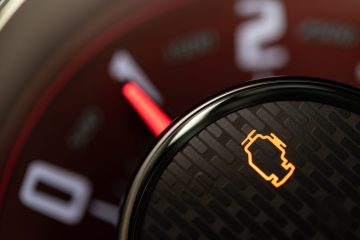Remember particulates? They’re the microscopic particles that are responsible for the collapse of the new-vehicle diesel market (directly or indirectly). The next area of contention for such health-damaging issues is likely to be the aftermarket.
Particulates are bad. They’re responsible for health issues and deaths. They contribute a great deal to air pollution and they harm the environment. Particulates from diesel are starting to drop thanks to the sharp decline in sales – although older models are remaining on roads.
But attention will soon turn to the aftermarket, specifically the fields of brakes and tyres. There is already a report in the UK on the levels of particulate matter from these areas, and it is not good. Once the focus on diesel has fully died down, we can expect some regulations on the materials used in brakes and tyres, and cheaper products, especially Chinese imports and counterfeit items, will likely fail in this new world.
The government’s Air Quality Expert Group said in 2019 that particles from brake wear, tyre wear and road surface wear directly contribute to well over half of particle pollution from road transport.
“No legislation is currently in place specifically to limit or reduce [these] particles,” the group warns. “So, while legislation has driven down emissions of particles from exhausts, the non-exhaust proportion of road traffic emissions has increased.”
Calling on the automotive industry to consider action to address the problem, Environment Minister Thérèse Coffey said: “The documents published today make clear that it is not just fumes from car exhaust pipes that have a detrimental impact on human health but also the tiny particles that are released from their brakes and tyres.
“Emissions from car exhausts have been decreasing through development of cleaner technologies and there is now a need for the car industry to find innovative ways to address the challenges of air pollution from other sources.”
For brakes, it is dust that causes the particulate matter. Therefore, new and more robust friction materials will need to be sought. The transition to battery-electric vehicles (BEVs) will help reduce this, as they put less wear on brakes, and therefore expel less material.
Where BEVs do not help, however, is with tyres. BEVs are heavy, and therefore put more pressure on the four contact patches as they move. This means increased tyre wear, and with that, comes particulate matter.
But there are efforts to prevent this – ENOS recently utilised a special, sustainable BEV tyre in the recent hypermiling record. This is designed to reduce or even eliminate particulate matter caused by heavy vehicles and therefore increased wear. Other tyre companies too will soon start to develop bespoke BEV tyres, as the problem becomes more widespread.
One thing is certain, it will be a while before particulate matter is a thing of the past – the problem simply passes from one field, to another…



